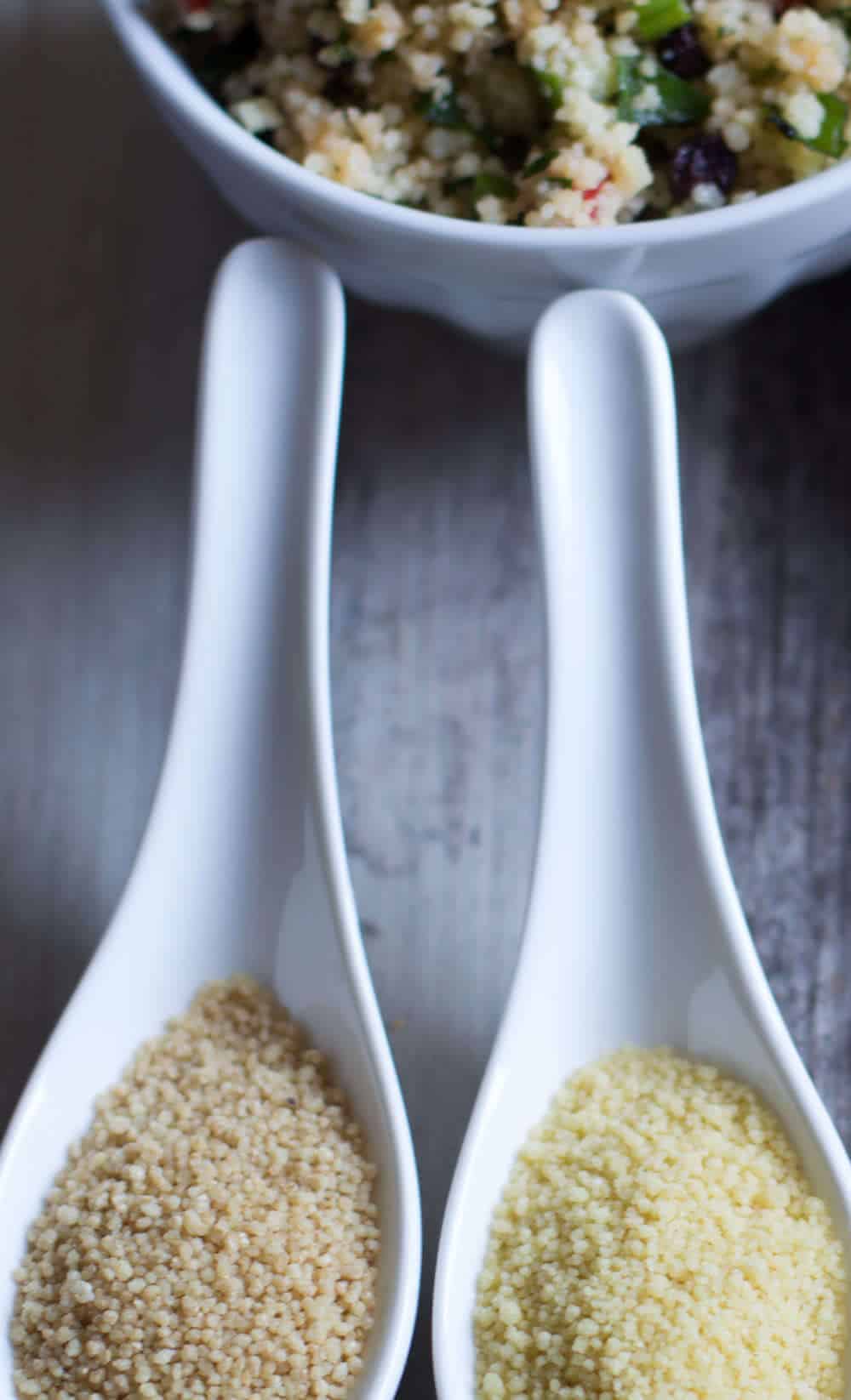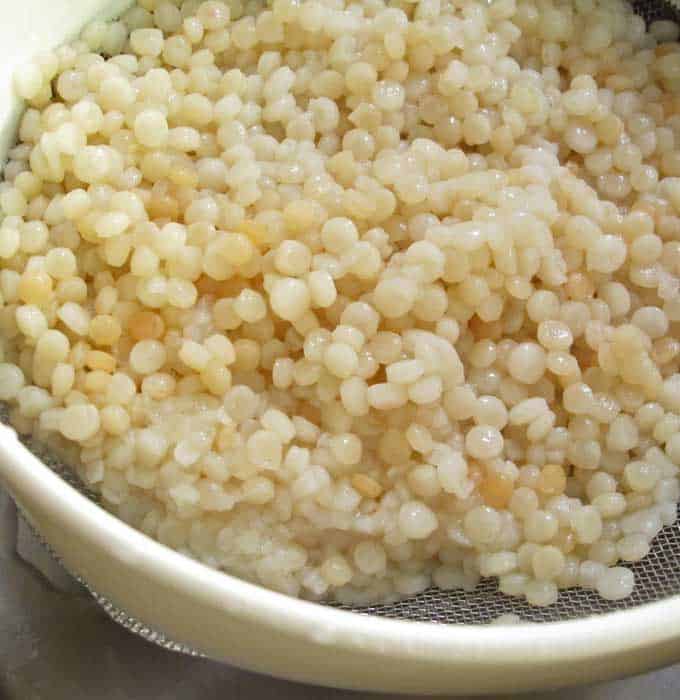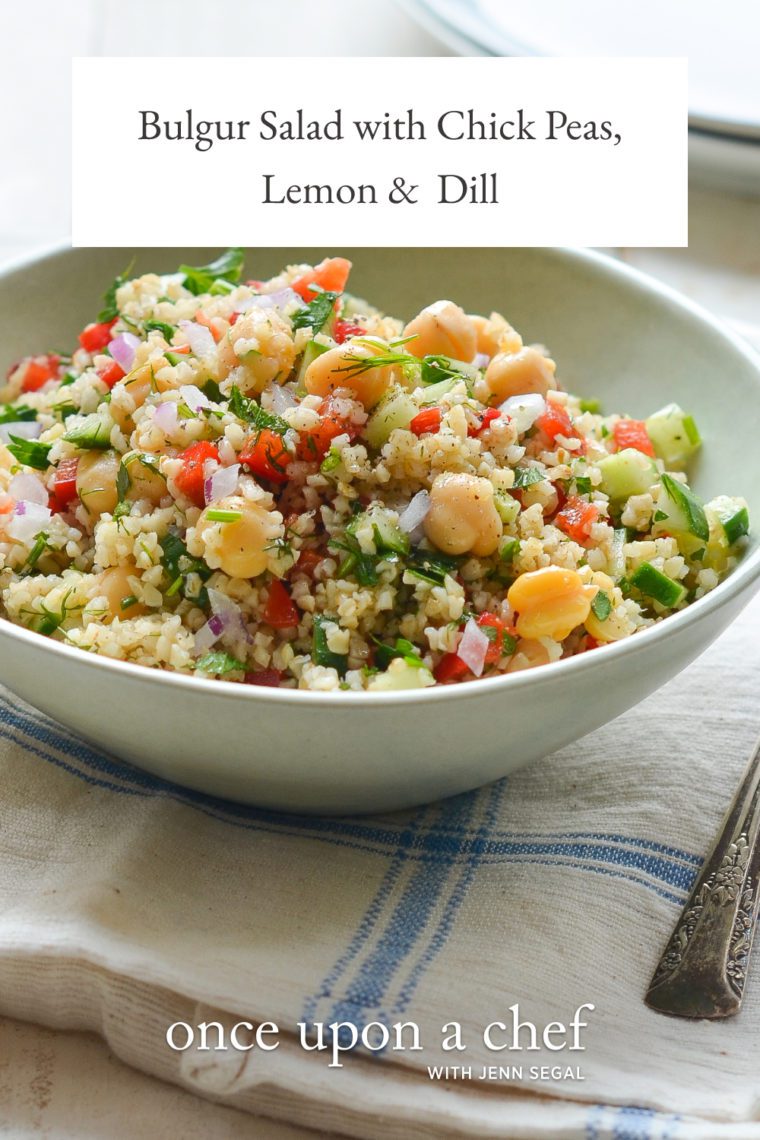
Introduction
A Brief Overview Of Bulgur Wheat And Couscous
Bulgur wheat and couscous are both popular grains that are often used in various dishes. Bulgur is a whole grain made from cracked wheat that has been partially cooked. It has a nutty flavor and chewy texture, making it a versatile ingredient in salads, pilafs, and stuffings. On the other hand, couscous is made from semolina wheat and is more of a pasta than a whole grain. It has a lighter texture and cooks quickly, making it a convenient option for many recipes.
Key Differences Between Bulgur Wheat And Couscous
Let’s compare bulgur wheat and couscous based on several key factors:
| Criteria | Bulgur Wheat | Couscous |
|---|---|---|
| Ingredients | Whole grain cracked wheat | Semolina wheat |
| Texture | Chewy and nutty | Light and fluffy |
| Cooking time | Longer cooking time required | Quick cooking |
| Nutritional value | Higher in fiber and protein | Lower in fiber and protein |
| Usage | Often used in salads, pilafs, and stuffings | Commonly used as a side dish or base for stews |
| Versatility | Versatile and can be used in various dishes | Limited in versatility |
In conclusion, the choice between bulgur wheat and couscous depends on the specific dish you are preparing and your dietary preferences. Both grains offer different textures and flavors that can enhance a wide range of recipes.
Bulgur Wheat: What Is It?
Definition And Origin Of Bulgur Wheat
Bulgur wheat is a whole grain that is made from cracked wheat kernels that have been partially cooked. It originated in the Middle East and has been a staple in Mediterranean and Middle Eastern cuisines for centuries. The process of making bulgur involves parboiling the wheat grains, then drying and cracking them. This gives bulgur its characteristic chewy texture and nutty flavor.
Nutritional Benefits Of Bulgur Wheat
Bulgur wheat is a nutritious grain that offers several health benefits. It is rich in fiber, which helps in digestion and promotes a feeling of fullness. Additionally, bulgur wheat is a good source of protein, making it a valuable ingredient for vegetarians and vegans. It also contains essential vitamins and minerals, such as iron, magnesium, and B vitamins. As a whole grain, bulgur wheat retains the bran and germ layers, which contain important antioxidants and nutrients.
In comparison to couscous, bulgur wheat stands out for its higher fiber and protein content, along with its versatility in various dishes. Whether used in salads, pilafs, or stuffings, bulgur wheat adds a hearty and nutritious element to any meal. Its long cooking time may require some planning but the nutritional benefits make it worth the wait.
Couscous: What Is It?
Definition And Origin Of Couscous
Couscous is a type of pasta made from durum wheat semolina, which is then formed into small granules. It is a staple ingredient in North African cuisine and has gained popularity worldwide due to its quick cooking time and versatility. Originally from the Maghreb region of North Africa, couscous is traditionally steamed, resulting in fluffy grains that can be used as a base for various dishes. Unlike bulgur, couscous is not a whole grain but a processed pasta product, which affects its nutritional profile.
Nutritional Benefits Of Couscous
Compared to bulgur, couscous is lower in fiber and protein due to the refining process it undergoes. However, it is still a good source of carbohydrates and provides energy for the body. Couscous is also fat-free and low in sodium, making it a healthier option for those watching their salt intake. While couscous may not offer the same nutrient density as bulgur, its quick cooking time and mild flavor make it a convenient choice for busy individuals looking to add a grain component to their meals.
When deciding between bulgur and couscous, consider your dietary preferences and cooking needs. Bulgur offers higher fiber and protein content, making it a more nutritious option for those seeking a heartier grain. On the other hand, couscous provides a quick and easy alternative that can be incorporated into various dishes with minimal preparation. Both grains have their own unique characteristics, so choosing the best option depends on your individual nutritional requirements and taste preferences.

Bulgur Wheat vs Couscous: Texture and Appearance
A Comparison Of The Texture And Appearance Of Bulgur Wheat And Couscous
When comparing Bulgur Wheat and Couscous, their texture and appearance play a significant role in determining their versatility in cooking. Bulgur Wheat is known for its nutty and chewy texture, with grains that are more substantial and have a slightly dense feel. On the other hand, Couscous is characterized by its fluffy and delicate nature, with tiny, light grains that expand when cooked.
How Texture Impacts Cooking And Recipes
The difference in texture between Bulgur Wheat and Couscous influences the way they are used in cooking. Bulgur Wheat’s chewy texture makes it a great addition to dishes like salads, stews, and pilafs, where its hearty consistency can stand out. In contrast, the fluffy nature of Couscous allows it to absorb flavors well, making it a suitable base for stir-fries, accompanying dishes, and even quick salads.
When considering which grain to choose for your meals, understanding the texture and appearance of Bulgur Wheat and Couscous can help you select the one that aligns with your cooking preferences and recipe requirements. Whether you prefer the robustness of Bulgur Wheat or the lightness of Couscous, both grains offer unique characteristics that can enhance the flavors and textures of your dishes.
Bulgur Wheat Vs Couscous: Cooking Methods
Different Cooking Techniques For Bulgur Wheat And Couscous
When it comes to cooking Bulgur Wheat and Couscous, the methods differ due to their unique textures. Bulgur Wheat requires a longer cooking time compared to Couscous. Bulgur Wheat usually needs to be simmered in water or broth for about 10-20 minutes to soften and absorb liquid properly. On the other hand, Couscous is a quick-cooking grain that typically involves a simple process of adding hot water or broth, covering it, and letting it sit for a few minutes until the liquid is absorbed.
Best Practices For Preparing Each Grain
For the best results when preparing Bulgur Wheat, it is advisable to use a 1:1.5 ratio of grain to liquid and allow it to simmer until the grains are tender. Once cooked, fluff the Bulgur Wheat with a fork to separate the grains. Couscous, on the other hand, requires a 1:1 ratio of grains to liquid and a shorter sitting time after adding hot water. Fluff the Couscous with a fork as well to keep the grains light and separate.
Understanding the different cooking techniques for Bulgur Wheat and Couscous can help you optimize the flavors and textures of your dishes based on the unique characteristics of each grain.
Bulgur Wheat Vs Couscous: Flavor Profiles
Contrasting Flavors Of Bulgur Wheat And Couscous
Considered for their distinct taste profiles, Bulgur Wheat offers a nutty and chewy experience, while Couscous presents a light and fluffy texture. Bulgur Wheat’s earthy nuttiness adds depth to dishes like salads, stews, and pilafs, enhancing their overall flavor. In contrast, Couscous’s delicate nature provides a neutral base that complements other ingredients, making it suitable for stir-fries and light salads.
How Flavor Influences Recipe Choices
The flavor disparities between Bulgur Wheat and Couscous significantly influence recipe decisions. Choosing Bulgur Wheat can bring a hearty, robust essence to your meals, ideal for creating substantial and filling dishes. On the other hand, Couscous’s mild taste works well with a variety of flavors, allowing it to adapt easily to different cuisines and ingredients.
Understanding the flavor nuances of Bulgur Wheat and Couscous enables you to select the grain that best aligns with the taste profile you intend to achieve in your culinary creations.

Bulgur Wheat Vs Couscous: Culinary Uses
Traditional Dishes And Recipes Featuring Bulgur Wheat
When it comes to culinary applications, Bulgur Wheat is a staple ingredient in Middle Eastern and Mediterranean cuisines. It is commonly used to prepare traditional dishes such as tabbouleh salad, kibbeh, and pilafs. The hearty and chewy texture of Bulgur Wheat pairs well with savory flavors, making it a popular choice for creating filling and nutritious meals.
Versatile Ways To Incorporate Couscous Into Meals
Couscous offers versatility in the kitchen, being a quick-cooking grain that can be adapted to a variety of recipes. It is commonly used in Moroccan, Algerian, and Tunisian cuisines to make dishes like couscous salads, tagines, and couscous-stuffed vegetables. The light and fluffy texture of Couscous makes it an excellent base for absorbing flavors from herbs, spices, and other ingredients, making it a favorite among chefs for its adaptability.
Health Benefits Of Bulgur Wheat And Couscous
A Comparison Of The Health Benefits Of Bulgur Wheat And Couscous
When comparing the health benefits of Bulgur Wheat and Couscous, Bulgur Wheat shines as a whole grain that is packed with nutrients. It is known for its high fiber content, which aids in digestion and helps promote a feeling of fullness, making it a good choice for weight management. Additionally, Bulgur Wheat has a lower glycemic index compared to Couscous, which means it leads to slower increases in blood sugar levels after consumption, making it suitable for those watching their blood sugar levels.
On the other hand, while Couscous is a processed grain, it still offers some health benefits. Couscous can be a quick and convenient source of energy due to its high carbohydrate content. It is also low in fat and cholesterol, making it a heart-healthy option for individuals looking to maintain a balanced diet.
Nutrient Content And Dietary Considerations
In terms of nutrient content, Bulgur Wheat is rich in essential nutrients such as manganese, magnesium, and iron, providing vital support for overall health and well-being. Its fiber content contributes to digestive health and can help lower cholesterol levels.
Conversely, while Couscous may not be as nutrient-dense as Bulgur Wheat, it still offers some benefits. It is a good source of selenium, an important mineral for antioxidant function in the body, as well as providing small amounts of protein and B vitamins.
Incorporating both Bulgur Wheat and Couscous into a well-rounded diet can provide a variety of nutrients and flavors, catering to different culinary preferences and dietary needs.
Health Benefits Of Bulgur Wheat And Couscous
A Comparison Of The Health Benefits Of Bulgur Wheat And Couscous
Comparing the health benefits of Bulgur Wheat and Couscous, it is evident that Bulgur Wheat stands out as a whole grain packed with nutrients. This grain is renowned for its high fiber content, promoting digestion and a sense of fullness, making it ideal for weight management. Furthermore, Bulgur Wheat boasts a lower glycemic index than Couscous, resulting in slower blood sugar level increases post-consumption, making it a suitable choice for monitoring blood sugar levels.
Although Couscous is a processed grain, it still offers health benefits. It serves as a rapid and convenient energy source due to its high carbohydrate content. Additionally, being low in fat and cholesterol, Couscous is a heart-healthy alternative for those aiming to maintain a balanced diet.
Nutrient Content And Dietary Considerations
Bulgur Wheat is abundant in essential nutrients like manganese, magnesium, and iron, providing crucial support for overall health. Its fiber content aids in digestive health and can assist in lowering cholesterol levels.
On the other hand, while Couscous may not match the nutrient density of Bulgur Wheat, it still delivers benefits. It serves as a good source of selenium, a vital mineral for antioxidant function, and offers modest amounts of protein and B vitamins.
Incorporating both Bulgur Wheat and Couscous into a balanced diet can offer a mix of nutrients and flavors to accommodate diverse culinary preferences and dietary needs.
Conclusion
Summary Of Key Points Comparing Bulgur Wheat And Couscous
Bulgur Wheat and Couscous present distinct differences. Bulgur Wheat is a whole grain, boasting a nutty and chewy texture, high fiber content, and a lower glycemic index. On the other hand, Couscous is a processed grain with a lighter and fluffy texture, serving as a quick and energy-rich source.
Final Thoughts On Choosing The Right Grain For Your Recipes
Whether opting for the robustness of Bulgur Wheat or the delicacy of Couscous, both grains offer unique qualities that can enhance the nutritional value and taste of your meals. Consider your dietary goals and preferences to decide which grain best suits your culinary creations.
FAQ About Bulgur Wheat Vs Couscous: Grains Compared
Q: What is Bulgur Wheat and Couscous?
A: Bulgur wheat is a whole grain made from cracked wheat that has been partially cooked, while couscous is a type of small pasta made from crushed durum wheat.
Q: How do Bulgur Wheat and Couscous differ in terms of taste and texture?
A: Bulgur wheat has a nutty flavor and a chewy texture, whereas couscous is more mild in flavor and has a light, fluffy texture.
Q: Are Bulgur Wheat and Couscous gluten-free?
A: Bulgur wheat contains gluten as it is made from wheat, while couscous also contains gluten as it is made from durum wheat.
Q: How are Bulgur Wheat and Couscous typically used in cooking?
A: Bulgur wheat is commonly used in salads, pilafs, and stuffings, while couscous is often used as a side dish or base for stews and tagines.
Q: Which grain is quicker to cook – Bulgur Wheat or Couscous?
A: Couscous is quicker to cook as it only requires soaking in hot water for a few minutes, whereas bulgur wheat needs to be boiled or soaked for a longer period.
Q: Can Bulgur Wheat and Couscous be used interchangeably in recipes?
A: While both grains can be substituted for each other in some dishes, they differ in texture and taste, so the results may vary.

Gourmet Tiger, a culinary sensation, was established with a vision to delight taste buds and create unforgettable dining experiences. Specializing in cakes, casseroles, lunch, catering, and more, Gourmet Tiger has become a household name synonymous with exquisite flavors and impeccable service. Since its inception, Gourmet Tiger has been dedicated to crafting delectable treats and savory dishes that exceed expectations. Their commitment to using only the finest ingredients and innovative culinary techniques has set them apart as a leader in the food industry.